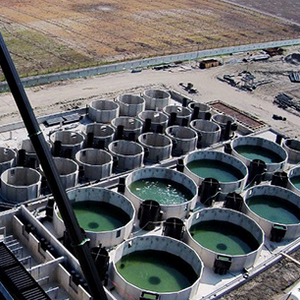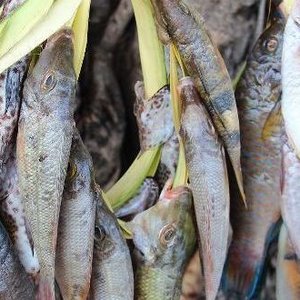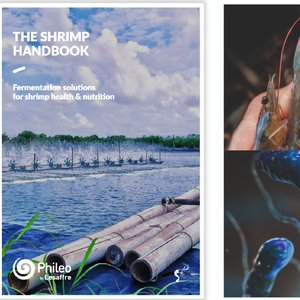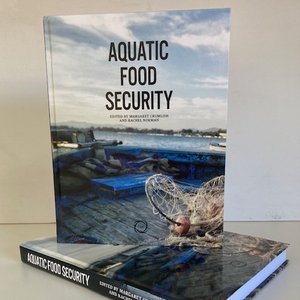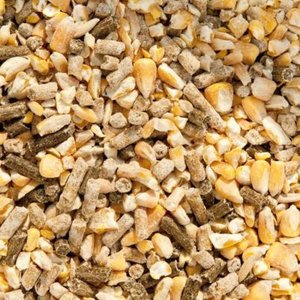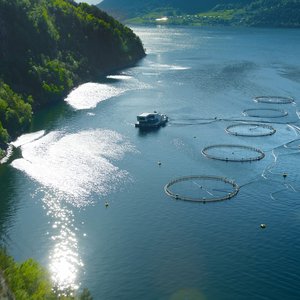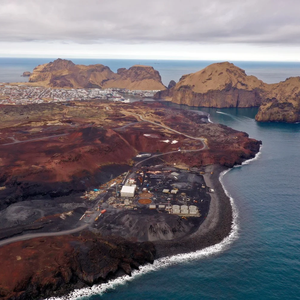A new report by the Dutch-based Changing Markets Foundation has found links between some of the world’s top supermarkets and illegal, unsustainable fishing operations in India, Vietnam and the Gambia which supply feed ingredients for farmed seafood products in high-income markets.
The report, Fishing for Catastrophe, maps fishmeal and fish oil (FMFO) supply chains from fishery to fork. It finds that the surge in popularity of fish, such as salmon and prawns, in the Western diet is causing fish stocks to collapse and taking a key source of protein away from some of the world’s poorest communities due to the aquaculture industry’s reliance on FMFO for fish feed.
The reports found that many farmed-fish products are labelled as certified sustainable despite the damaging impact of the FMFO industry on marine ecosystems. The investigation also found that while retailers take assurances from FMFO trade body IFFO about supply chain sustainability at face value, dozens of IFFO members and certified companies are linked to unsustainable and illegal fishing practices. The report highlights that the certification standard for the FMFO industry (IFFO RS) is a sustainability smokescreen, with IFFO simultaneously functioning as the FMFO industry trade association, representing the interests of the sector by promoting the use of FMFO and lobbying to defend the industry.
The report also found that FMFO production is accelerating the decline of fish stocks and diverting fish from human consumption in India, Vietnam and The Gambia.
Salmon producers
The Scottish Salmon Producers Organization (SSPO) said that companies providing feed for Scottish farm-raised salmon have confirmed that none of them use ingredients from the Gambia, Vietnam or India or from reef fishing – the main thrust of the criticism highlighted in the report. Any claim or suggestion that Scottish feed suppliers are sourcing from these fisheries would be wrong, misleading and inaccurate.
Scotland’s feed suppliers will continue to ensure their ingredients are sourced from responsible and sustainable fisheries, allowing Scotland’s salmon farmers to achieve the best feed conversion ratios of any livestock, thus ensuring best use of marine resources.
Report findings
In the Gambia, the report found that:
- FMFO destined for human consumption has been exported with falsified food safetycertificates.
- The fish catch of just one of the Gambia’s three FMFO plants accounted for approximately 40% of the country’s total reported catches in 2016, revealing the massive scale of this new industry in the country.
- Pollution from FMFO production is destroying the Gambia’s budding eco-tourism industry.
- At least one Gambian plant sells most of its fishmeal to Vietnam which is then relabelled on the black market for re-export to China, the world’s largest aquafeed producer, circumventing the absence of a fishmeal export agreement between the two countries.
In Vietnam, the report found:
- Significant under-reporting of catches is enabling overfishing to continue unchecked.
- Catches destined for FMFO factories are not being reported to authorities.
- Lack of fish is leading to widespread fishing in foreign waters, which stokes regional tensions.
- Fish stocks are in decline. For example, fishermen in the Vung Tau province reported their lowest catches ever in 2018, due to overfishing for FMFO.
- Highly unsustainable fishing techniques are being used and fishing is indiscriminate, targeting species not traditionally used for FMFO.
- Pollution from FMFO production is blighting people’s lives.
In India:
- The sudden monetization of trash fish brought about by the FMFO industry has resulted in the proliferation of non-fishermen looking for short term returns.
- Fish stocks of species traditionally used for FMFO have collapsed.
- The FMFO industry is indiscriminate: juvenile fish, species traditionally destined for human consumption and reef fish are all being used to produce FMFO.
- FMFO plants generally by-pass traditional auctions and secure a fishing vessel’s entire catch with upfront payment.
- Powerless to reject the industry’s advances, fisher people are using more damaging methods of fishing and poor preservation (spoiling edible fish) and selling to plants rather than at auction.
- Local communities are affected by air and water pollution from FMFO production.
Changing Markets has offered the following series of recommendations to ‘protect finite andrapidly dwindling global fish stocks’:
Aquafeed industry
- Stop using wild-caught fish and switch to more sustainable alternatives – the use of FMFO from whole wild fish must be phased out across the entire industry for transformational change to take place.
- Ensure that alternative feed sources do not give rise to other ecological problems.
Aquaculture industry (fish farms)
- Prioritize cultivating species that require no feed (e.g. shellfish) less feed (e.g. tilapia), or that can be fed an entirely vegetarian diet (e.g. carp).
- For species that require feed, push aquafeed producers to provide genuinely sustainable alternatives for aquafeed containing FMFO.
Certification schemes
- Remove certification of reduction fisheries, fish that are not used for direct human consumption, and farmed fish reliant on the use of FMFO from whole wild-caught fish for feed.
Read the report here.


